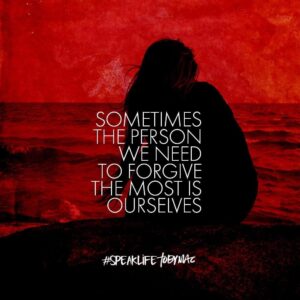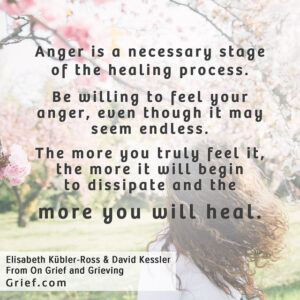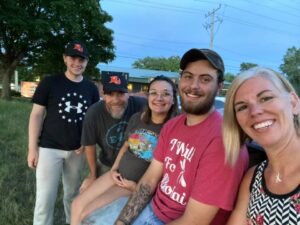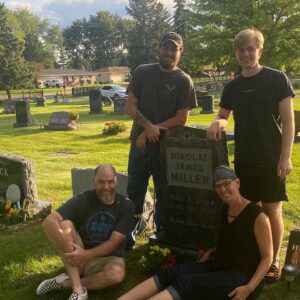
If you are a suicide survivor, I highly recommend you read, “Understanding Your Suicide Grief” by Alan D. Wolfelt, PhD. Shortly after Nikolai died, an acquaintance I know in my community gave me this book.
It took me almost two years before I decided that I should read it, that I needed to read it. I ignorantly believed all this time that I was fully in touch with how to handle my grief and heal myself.
I tried therapy and that didn’t work for me. It was probably more me than him, but either way, I walked away from it. I got a few things off my chest and decided I was good to go. Then as you all know, that season of anger hit me like a fan on full blast in your face. The last few months has been trying to figure that out and what to do with it. Per my last blog, I read “The Choice” by Dr. Edith Eger. I believe that book saved me in many ways. It gave me a different perspective and helped me pinpoint the anger. I was angry at me. The need to find a way to forgive myself and truly heal has been at the forefront of my mind ever since.
So when I saw this book gathering dust on my bookshelf I decided to finally take a peek.
It didn’t take long. On page 34, Dr. Wolfelt writes, “In large part, healing from a suicide death is anchored in a decision to not judge yourself but to love yourself. Grief is a call for love. So, if you are judging yourself and where you are in this journey, STOP! Judgment will not free you to mourn, it will only make you afraid to do so. When you stop judging the multitude of emotions that come with your grief, you are left with acceptance, and when you have acceptance (or surrender), you have love. Love will lead you into and through the wilderness, to a place where you will come out of the dark and into the light.”
I have found that I am afraid to let go of the pain, I want to hang onto it; yet, at the same time, I want to be free of it. This is making me so angry. And, really, it all begins with forgiveness and love. Nikolai’s death is not my fault. His death was not in my control, it was in his. He is responsible for it, not me. I was a good mom. I wasn’t perfect, but I was good enough.
All of the what if’s and why’s have to stop. These are only questions Nikolai can answer. They aren’t for me. To continue to try and relive every step of his life serves no one.
It is time for me to surrender, to forgive, to love and let peace finally settle inside me. Easier said than done? Perhaps. But it’s time.
Grief work is hard, yet necessary. This journey through loss and healing does not mean we forget those we have lost. It doesn’t mean that our feelings of loss will ever disappear. However, if we do the work, the devastating feeling of loss will soften and peace and joy will re-enter our lives. We will never go back to “normal,” we will discover a new “normal” and that is where forgiveness lies and love lives.
We have a responsibility to live. While it hurts to suffer lost love, we owe it to those we lost to continue living with passion and love on our heart.
“Your joy is sorrow unmasked…
The deeper that sorrow carves into your
being, the more joy you can contain.
When you are joyous, look deep into your heart
and you shall find it is only that which has
given you sorrow that is giving you joy.
When you are sorrowful, look again in your heart,
and you shall see that in truth you are weeping
for that which has been your delight.” – Kahlil Gibran




